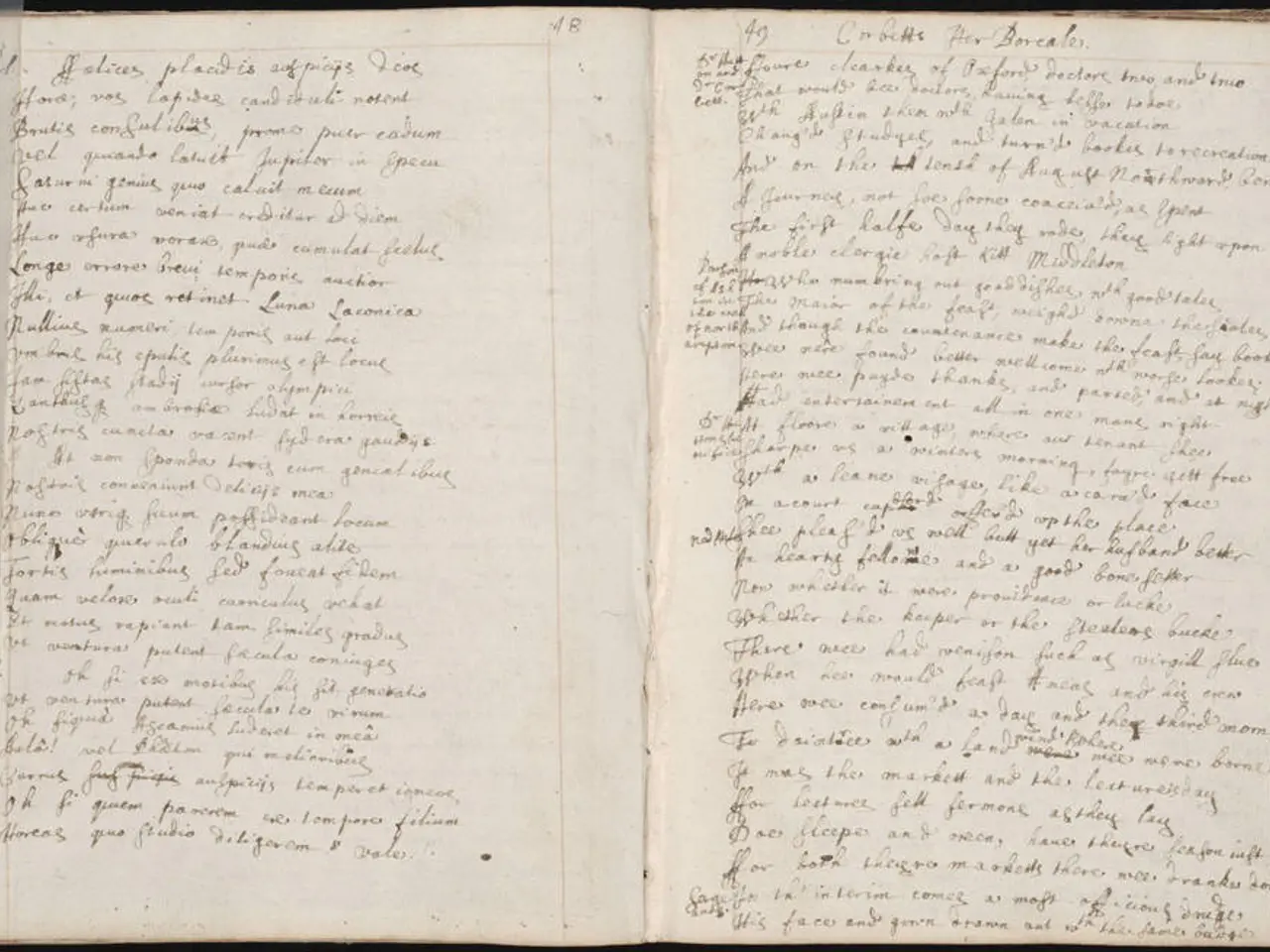Pen a New Narrative: Simply Put Your Writing Skills to Use
Writing, an art form that can be both cathartic and challenging, often faces obstacles such as resistance, procrastination, fear, and self-doubt when it is stopped. However, a consistent writing practice can help navigate these hurdles more effectively.
One author found their motivation to take writing seriously after a car accident. An inner voice urged them to "Write like your life depends on it." This experience underscores the transformative power of writing during personal crises, a sentiment echoed by Steven Pressfield who encourages writers to keep writing during tough times, likening it to athletes playing hurt or warriors fighting scared.
Regular writing has been associated with increased productivity, frequent creative thoughts, and less struggle with self-doubt. Establishing a consistent schedule—writing daily or at set times—builds momentum and improves output over time, creating a steady flow of ideas and progress. In contrast, binge-writing often leads to stressful sprints that cause burnout and leave work unfinished or needing extensive revision.
Writing regularly also helps maintain a connection to your ideas and research, encouraging a steady flow of inspiration without exhausting your creative resources. Setting low bars and writing daily trains the mind to generate creative content more effectively. In contrast, binge-writing can deplete creativity and increase frustration.
Routine writing reduces feelings of anxiety and self-doubt by framing writing as a positive habit, not a high-stakes performance or a chore. Focusing on small, manageable writing goals combats the paralysis caused by fear of imperfection or failure. In contrast, binge-writing driven by the pressure to produce brilliance can exacerbate self-doubt, leading to writer’s block or abandonment of projects.
Inertia, a tendency to remain unchanged, can act as both an ally and a foe in writing. Taking time off from writing should be followed by a plan for returning to writing to avoid being caught off guard by resistance. The Muse, the source of creative inspiration, is considered to be a hardcore and resilient entity. If you stop writing regularly, it requires a greater effort to begin again.
Personal difficulties can cause inner resistance to writing to creep up, leading to procrastination. However, writing consistently, even during internal catastrophe or personal life crises, can be confidence-building and inspiring. Writing can serve as a solace and a commitment to oneself during personal misfortunes.
Writing daily, even for a short period, can result in significant progress. One example is an author who managed to write 55 pages in 11 weeks by committing to a daily writing routine. Theodor Adorno once said that writing can become a place to live for a man who no longer has a homeland.
In conclusion, regular writing nurtures a healthier writer’s mindset by embedding creativity into daily life, while binge-writing often triggers stress, burnout, and negative self-judgment that undermine both productivity and inspiration. Embracing a consistent writing practice can lead to a more fulfilling and productive writing journey.
- Actively engaging in writing regularly, as suggested by the author who took writing seriously after a car accident, can help fuel personal growth and self-development, transforming one's life significantly.
- Writing consistently, even during tough times, can serve as a means of solace and self-commitment, building confidence and fostering inspiration, as shown during personal crises.
- Education and self-development can be enhanced by adopting a routine writing practice, as it encourages creativity and productivity, contrary to the unproductive and stressful bursts of binge-writing.
- The script or screenplay of a film or even a TV show can be seen as a testament to personal growth and resilience, much like the author who diligently wrote 55 pages in 11 weeks by consistently maintaining a writing routine.




